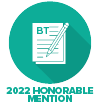Yo quiero aprender mas

The American Medical Student Association and the ABIM Foundation partnered to launch the Building Trust Essay Contest. Medical students were asked to reflect on a time where they built, lost, or restored trust in a health care setting.
“Social determinants of health” – four words that compose one of the most significant phrases to ever traverse health care. They have prompted me to explore exactly what these words mean: to myself as a person, my education, my future practice, and my impact on my community. How could I, a single medical student, work within the teams I have formed with my mentors, friends, and colleagues to improve the social determinants of health experienced by the members of my community?
The major public health threats of diet, exercise, smoking, addiction, housing, and so much more, can be resolved through the development of trust between health care professionals and the community members they serve. That trust also has to overcome a history of systemic racism, language barriers, and individual anecdotes of providers with implicit biases against gender, racial, and ethnic minorities.
I was recently part of a team that helped run a flu drive and perform diabetes and hyperlipidemia screenings for members of a predominantly Spanish-speaking community in South Dallas. During the event, I began to recognize the trusted sources of this particular community, especially of those who did not speak English.
I went to the flu drive equipped with only a 10th grade level Spanish education and attempted to engage in conversation as I screened people for hyperlipidemia and diabetes. I was eager about the event, but nervous about how I would communicate with the participants. I immediately witnessed the immense trust many older participants placed in the hands of their children and grandchildren who knew English, as they straightforwardly relayed test result interpretations.
Over the next few hours, as the insecurities about my Spanish-speaking abilities diminished, I began to understand the importance of being able to communicate directly with whomever I was serving. Most of the interactions I made with a patient went this way: I would greet them with “Buenos Dias,” and then would preface the rest of our interaction with “Lo siento, mi espanol es muy mal, pero yo voy a intentar y quiero aprender mas,” or “Sorry, my Spanish is very bad.” This well-rehearsed phrase of mine was always answered with a reassuring chuckle from the other side of the table and “Bien.”
The people I spoke with understood that even though I could not converse with them fluently, I was trying to communicate with them as well as I could. I was given reassurance that they trusted what I had to say when they would fill in words for me as I spoke to them about their test results and lifestyle modifications.
At the same event, I also saw the impact of a community’s leadership as a source of trusted information for its members. The health fair was hosted on a Sunday next to a church, and the biggest waves of participants came to us within the hour of the end of each service. I realized that we, as servants of our community, need to tap in to the currently trusted platforms of information held by the community – like the local church. We can use this foundation of trust to improve our relationship with the community to serve them in a more impactful way – a way in which they will feel comfortable disclosing conditions beyond their physical health, so that we can also address their social determinants of health.
I’m now exploring the causes of vaccine hesitancy within this community. To improve trust, we do not need to start from scratch, and we do not need to work alone. We can continue to learn about the viewpoints held by this community to unlock where their trusted sources of information are to use these platforms to deliver accurate information.
During the flu drive, not only did we see the important role that young family members served – as translators for their community – but we also saw the importance of the local church in their social lives. We experienced the synergistic impact of the drive’s coordination with the church’s leaders in boosting participation in the flu drive. This clued us in to how we can continue to use places of worship to provide accurate information about vaccines, healthy lifestyle habits, and other public health information to the community. This is how we can serve our communities beyond the four walls of our hospitals and clinic buildings so that patients can take control of their health status on all fronts.
Suman Vadlamani is a second-year medical student at UT Southwestern Medical Center in Dallas. She is also in her second year of her MPH degree through UT Health. She has an interest in Women’s health, which is the direction in which she wants to take both of her degrees. She hopes to become an OB/GYN doctor and focus her public health work on progressing women’s health initiatives.
Building Trust Essay Contest Winners & Honorable Mentions
- What We Hold and What We Share
- Bridging Generations in Medicine: Trust and Professionalism in a Rural Town
- The Clay Heart
- The Weight of Words
- Peeking Behind the Curtain
- Making Sense of the Unfamiliar
- Breaking Silence
- From Resilience to Relief
- Whispers of Solace: My Journey as an Abortion Doula
- Reading Between the Lines: Unveiling Cultural Understanding to Build Trust in Patient Care
- The Cultural Context of Hope
- Taking a Knee

